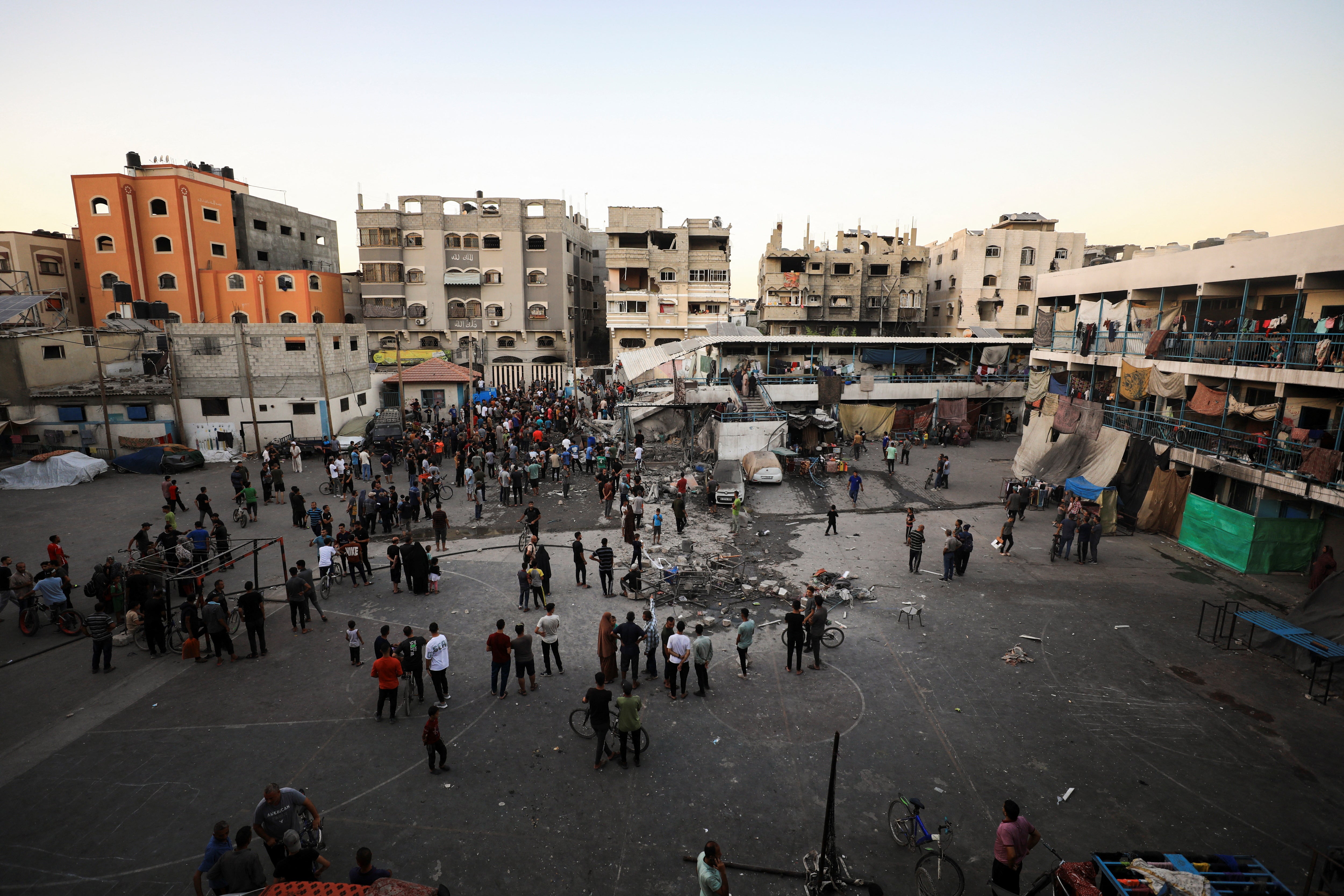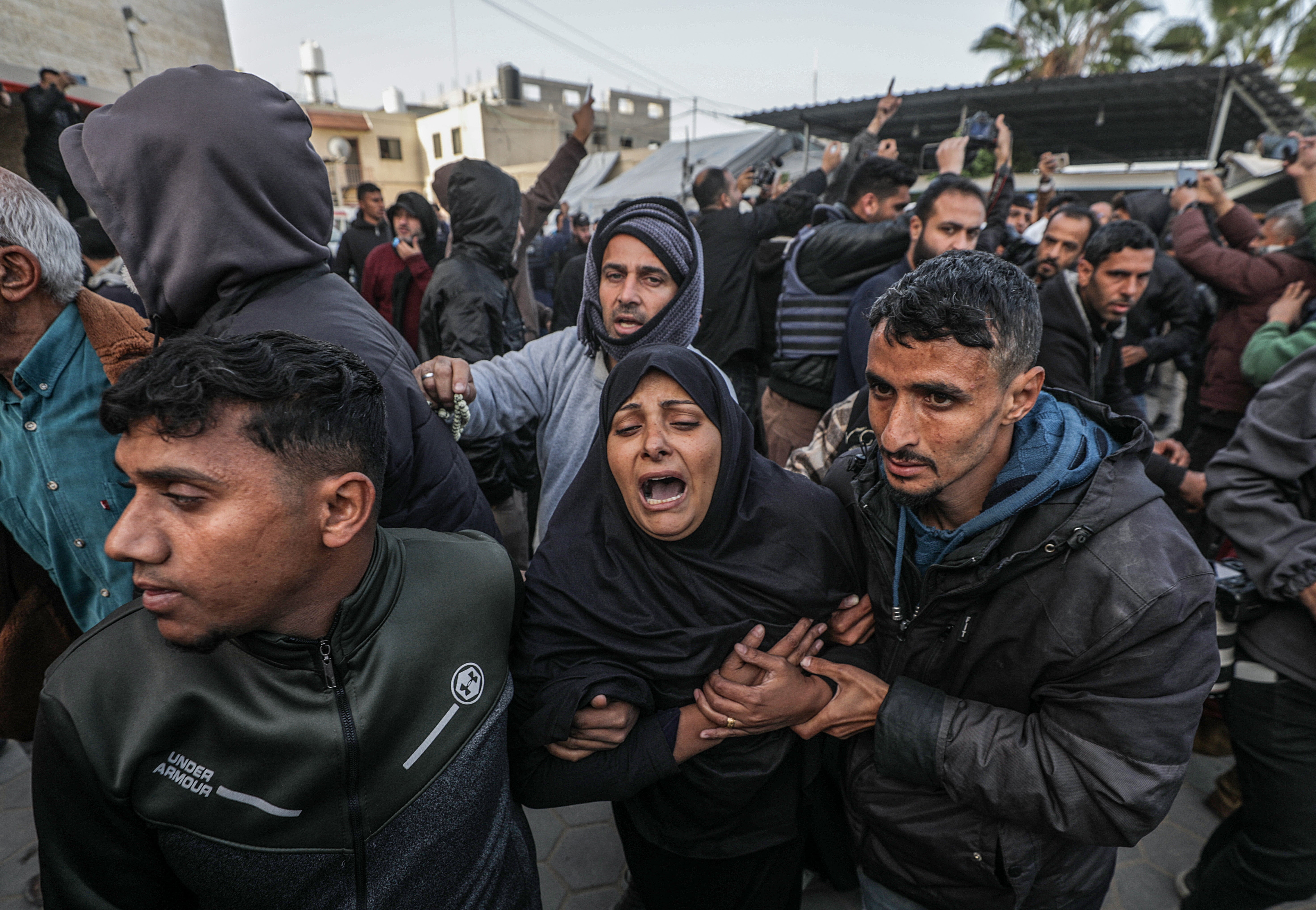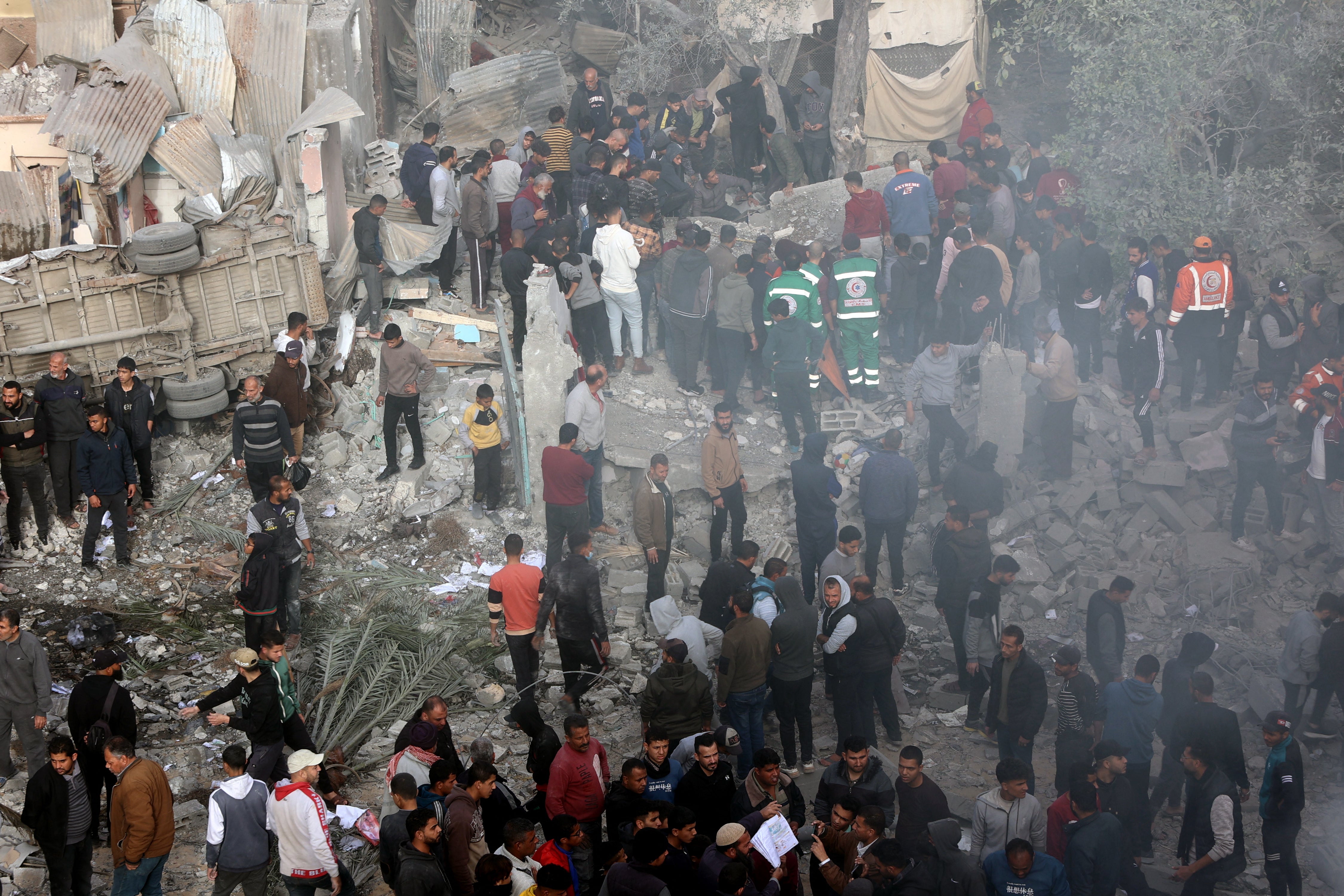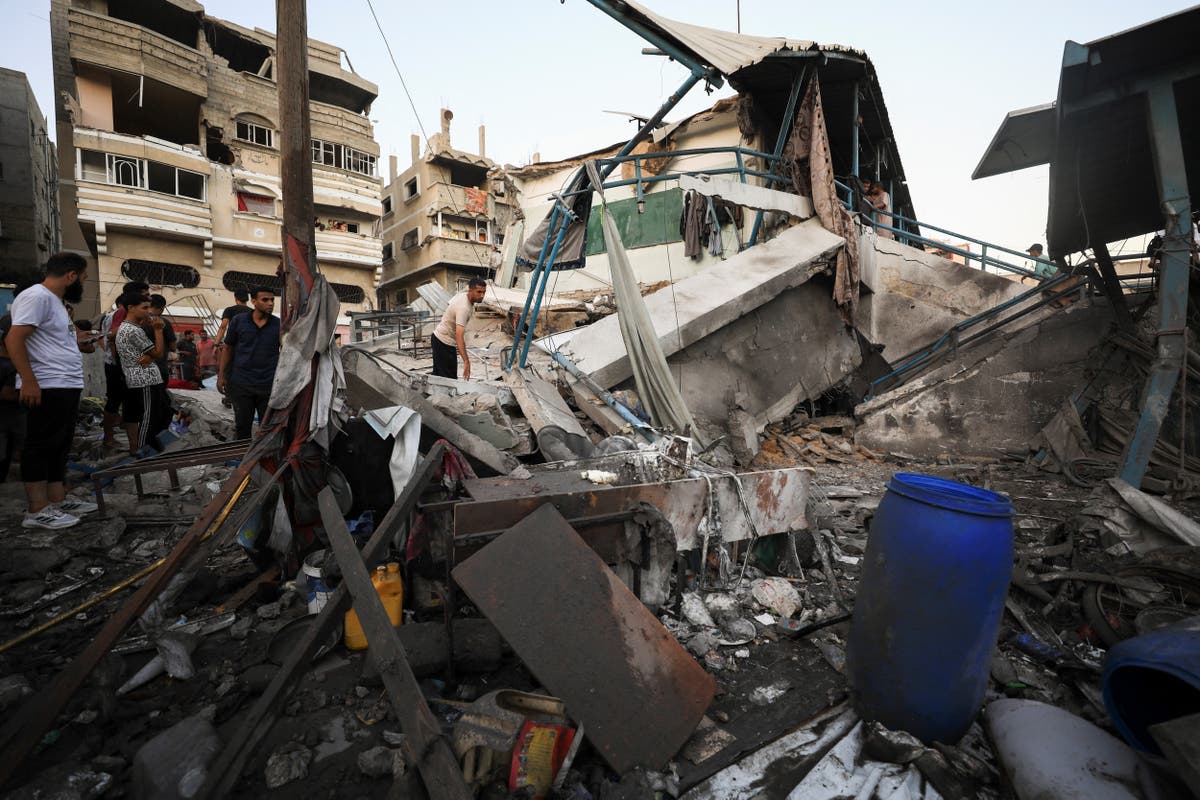At least 50 Palestinians were killed in an Israeli airstrike near the Kamal Adwan hospital in northern Gaza on Thursday night.
The Israeli military subsequently stormed the hospital, Al Jazeera reported. The soldiers used loudspeakers to order patients and staff to leave within 15 minutes and cut off communication to the facility before storming it, the outlet said.
The hospital, one of the last functioning healthcare facilities in northern Gaza, has been under a sustained Israeli attack for weeks.
“There are nearly 50 martyrs, including three of our medical staff, under the rubble of a building opposite Kamal Adwan Hospital in the Beit Lahia Project area after it was bombed by Israeli warplanes,” the hospital director, Hussam Abu Safia, was quoted as saying by the Turkish news agency Anadolu.
The latest attacks on Gaza came as a wave of Israeli airstrikes hit Yemen’s main airport on Thursday just as the World Health Organization’s director general was about to board a flight there.
A crew member of a UN plane was injured when Israeli jets bombed the Sanaa airport earlier on Thursday, WHO chief Tedros Adhanom Ghebreyesus said on X.
The rest of the team left the airport and were “safe and sound” in Sanaa, UN associate spokesperson Stephanie Tremblay said.
An assessment of the damage to the airport would be made on Friday to ascertain if the UN delegation could leave Yemen, she added.

Even as ceaseless Israeli attacks worsen the humanitarian crisis in Gaza, an organisation monitoring food crises globally withdrew its warning of imminent famine in the northern part of the besieged Palestinian territory under Israel’s “near-total blockade” after being pressured by US officials, the Associated Press reported.
The rare public challenge from the Joe Biden administration to the work of the US-funded Famine Early Warning System, or Fews, which is meant to reflect data-driven analysis of unbiased experts, drew accusations from aid and human rights figures of possible political interference by Washington.
A finding of famine would be a rebuke of US ally Israel, which insists its war on Gaza is aimed against the Hamas militant group and not against its civilian population.
In its withdrawn report, Fews said unless Israel changed its policy, the number of people dying of starvation and related ailments in north Gaza could reach between two and 15 per day sometime between January and March.
The internationally recognized mortality threshold for famine is two or more deaths a day per 10,000 people.
US ambassador to Israel Jacob Lew this week called the warning by the globally recognised group inaccurate and “irresponsible”.
Mr Lew and the US Agency for International Development, which funds Fews, claimed the findings failed to properly account for rapidly changing circumstances in north Gaza.

The US embassy in Israel and the State Department declined to comment.
Fews confirmed on Thursday it had retracted the famine warning but expected to rerelease the report in January with updated data and analysis. The group declined further comment.
Usaid confirmed it had asked Fews to withdraw its report warning of imminent famine issued on Monday.
The dispute points in part to the difficulty of assessing the extent of starvation in largely isolated northern Gaza, where thousands of people have fled an intensified Israeli military crackdown that aid groups say has allowed delivery of only a dozen trucks of food and water since roughly October.

In publicly challenging the findings of Fews, the US envoy “leveraged his political power to undermine the work of this expert agency”, Scott Paul, a senior manager at the humanitarian nonprofit Oxfam America, said.
Mr Paul stressed that he wasn’t weighing in on the accuracy of the data or methodology of the report.
“The whole point of creating Fews is to have a group of experts make assessments about imminent famine that are untainted by political considerations,” Kenneth Roth, former executive director of Human Rights Watch, said.
“It sure looks like Usaid is allowing political considerations – the Biden administration’s worry about funding Israel’s starvation strategy – to interfere.”
The US, Israel’s main backer, provided a record amount of military support in the first year of the war. At the same time, the Biden administration repeatedly urged Israel to allow more access to aid deliveries in Gaza overall and warned that failing to do so could trigger US restrictions on military support. The administration recently said Israel was making improvements and declined to carry out its threat of restrictions.
Military support for Israel’s war on Gaza is politically charged in the US, with Republicans and some Democrats staunchly opposed to limiting support over the suffering of Palestinian civilians trapped in the conflict. The Biden administration’s reluctance to press Israel for improved treatment of Palestinian civilians undercut support for Democrats in last month’s elections.
Israel’s war on Gaza has so far killed over 45,000 Palestinians, more than half of them women and children, according to the local health ministry. The air and ground assault has caused widespread destruction and displaced around 90 per cent of the besieged territory’s 2.3 million people, often multiple times.
The assault began in October last year after a Hamas attack killed 1,200 Israeli civilians and soldiers and saw 250 taken hostage.
Additional reporting by agencies.

